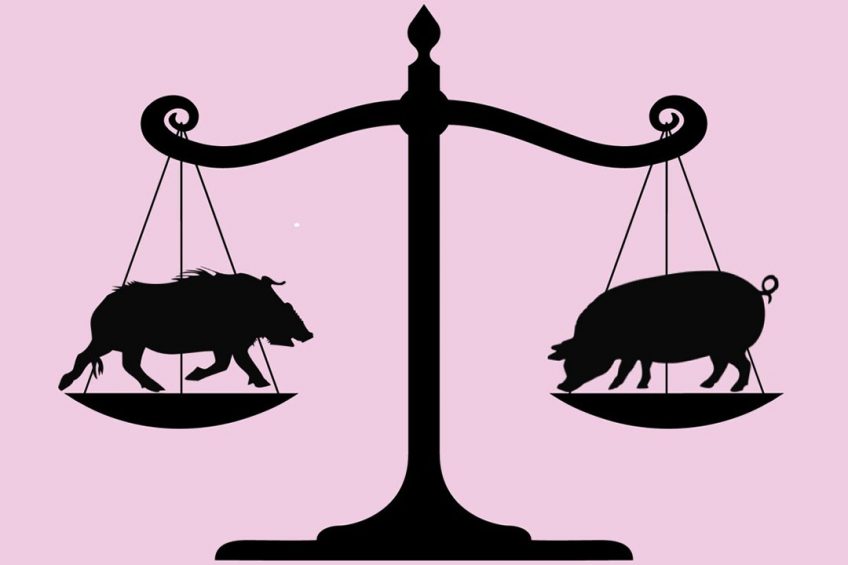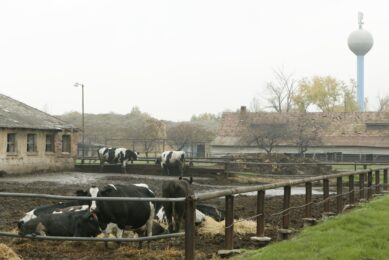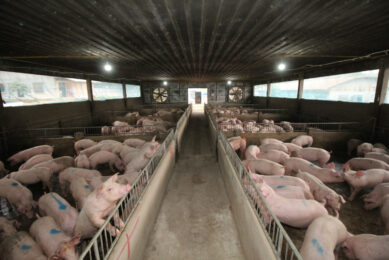When sentiment meets swine fever

What would happen if African Swine Fever was found in wild boar in a country full of humans and pigs, like the Netherlands? Pig Progress editor Vincent ter Beek paints the context and just hopes the storm will pass.
There are no more mink farms in the Netherlands. They disappeared in the course of 2020. In 2019, there were 128 mink farms left. The animals were kept for their fur, which after slaughter would mostly be shipped abroad. A few years back, the export of mink skins was estimated at € 154 million.
And now, they are gone. They disappeared in the wake of Covid-19. During the pandemic, it became clear that mink can actually contract the virus and that they can re-infect humans. Every time a mink farm check returned positives, the farm had to be depopulated.
Bit by bit, the pressure grew on the national authorities to close them all down. So in August 2020, the decision was made to depopulate all remaining mink farms, as a precautionary measure to avoid any further problems.
Mink farms: controversial for 30 years
This ended the presence of an agricultural industry that had been controversial over the last 30 years. For animal welfare reasons, a growing number of people had started asking aloud whether a developed country such as the Netherlands should facilitate fur production, of which the vast majority was shipped overseas anyway.
Reflecting that trend, the number of mink farms had been in decline. In 2013, the government decided that all the farms should be closed by 2024 anyway, giving the remaining producers substantial time to gradually close down their operations and prepare for something different. Covid-19 accelerated these developments and suddenly everything shut down by 2020.
The reason I am sharing this, is that in a way it is remarkable to see that an industry can just be wiped out in a few months if a negative sentiment in society is backed up by recent events. Obviously, something similar would not happen to the pig business over here. The swine industry in the Netherlands is a lot larger and more vivid than mink production, so we are talking about 2 completely different magnitudes. Yet the combination of negative sentiment and recent events can be explosive and therefore deserves a further exploration.
Recent events: another virus around the corner
To start with the recent events, as Pig Progress has been reporting in recent months, African Swine Fever (ASF) has been found in wild boar populations in neighbouring Germany. Still 500 kilometres away from the border, but we have seen what could potentially be the effects of 1 person recklessly throwing a pork sandwich out of the window.
EU regulations require the creating of zones, the culling of all domestic pigs in the neighbourhood (if applicable), the intelligent hunting of wild boar to avoid transmission and an intensified search for wild boar carcasses.

Track the movement of African Swine Fever
For everything you need to know about ASF, from the latest outbreaks to controls stay up to-date…
The sentiment: wild boar or pig farms?
To explore the sentiment a little, it is good to turn to the following anecdote. A liberal newspaper recently joined a hunter in the south of Netherlands on his nocturnal mission to shoot wild boar. Officially, wild boar are supposed to live in 2 national parks, but in reality they often happen to roam elsewhere as well. With ASF in Germany, it is considered wise to maintain the intended balance a bit stricter and what better time to hunt than at night?
Having read the article, Jesse Klaver, the leader of environmentalist party GroenLinks in Parliament shared a tweet, saying: “Shooting these beautiful animals to fight a disease is the world upside down. These diseases come into existence by locking up pigs too close to one another, not because of wild boar walking around. That is why the number of livestock has to come down by a half and factory farming needs to stop.”
Deze mooie dieren afschieten om een ziekte tegen te gaan is de omgekeerde wereld. Deze ziektes ontstaan juist door varkens te dicht bij elkaar op te sluiten, niet door rondlopende wilde zwijnen.
Daarom: halveer de veestapel en stop met de bio-industrie.https://t.co/Q50zie9sJ5
— Jesse Klaver (@jesseklaver) February 10, 2021
Members of the agricultural community reacted quickly
Truth be told, quite a few members of the agricultural community were quick to point out there were a number of blatant errors in his tweet and accused him of being opportunistic. Yet, it is the underlying message that caught me. Basically Klaver says, if he had to choose between wild boar and conventional swine farming, he would choose wild boar.
He is not just a parliamentarian. His party represents a substantial number of voters with his opinion. Unlike the UK or the USA, the Netherlands has a multitude of political parties in Parliament, reflecting the many preferences in society. His party occupies 14 of 150 seats in Parliament. And it is not the only one. Currently, there are at least 2 more parties, representing another 23 seats in Parliament, also advocating a halving of the livestock industry. One of them is the Party for the Animals (PvdD, 4 seats), which has been growing steadily since 2002 with its message to put an end to “factory farming.”
What would happen if ASF in the Netherlands?
I cannot help but think what would happen if something like ASF was found in the Netherlands. As you may know, apart from 12 million pigs, the country harbours 17.3 million well-educated and rather vocal souls in an area half the size of South Carolina. The result is that quite a few of them do not work in agriculture. And yes, that is an understatement.
They form a majority in a democratic country with serious spacing issues. They live in cities, and want additional affordable houses, they desire a clean environment and biodiverse nature, they need renewable energy, they want all animals to live happily and they certainly do not want to smell manure once they have moved in in their newly built affordable house.

Soon to come: parliamentary elections
Interestingly, on March 17, there will be parliamentary elections in the Netherlands, with subsequent government forming, which never happens overnight here. For anyone in the pig business, I hope that sentiment and swine fever will not collide in the next weeks and months to come.
To be continued, that is for sure.











